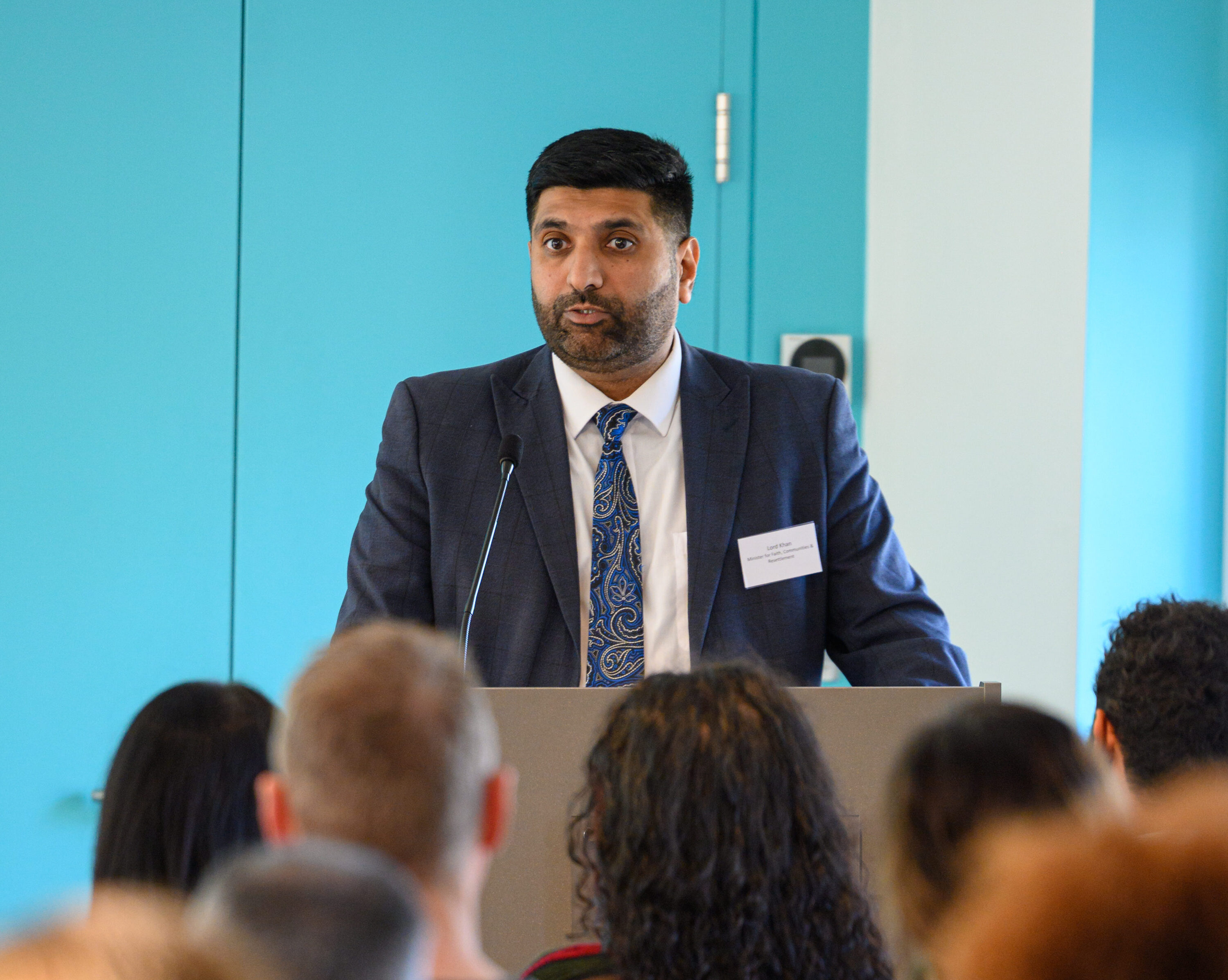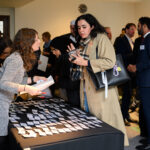
“Social cohesion is not the absence of riots,” former Communities Minister John Denham told a community cohesion summit this week. “We should judge it by whether most people believe they have a stake and a voice that is equal with others – and whether this is a nation with the confidence to handle difference through dialogue.”
Earlier in the conference Lord Khan of Burnley, MHCLG Minister for Faith, told participants that “The government is determined to take a long-term, strategic approach to building social cohesion.”
Cohesion organisations Belong, British Future and the Together Coalition had brought together community cohesion experts and grassroots practitioners from across the country to the London summit, to discuss this summer’s racist disorder and how to build greater cohesion and resilience in communities to prevent it happening again.
In the September report After the Riots, the three organisations had set out key recommendations for a comprehensive response to strengthen the foundations of social cohesion in the UK, including calls for a national cohesion strategy. This event sought to capture the knowledge and experience of participants to inform the content of such a strategy, with recommendations to government.
Among the others addressing the summit were Professor Ted Cantle and Dame Sara Khan, who both led high-profile reviews into social cohesion.
Lord Khan opened the summit by underlining the importance and urgency of building social cohesion after this summer’s disorder. He warned that successive governments had “Relied on the good will of individuals and hoped we will muddle along,” adding that “We have seen the social fabric start to fray.” The Minister stressed the need to work with local government, the voluntary sector and communities themselves to strengthen the bonds between people in our communities and “Allow people to reclaim pride in the places they call home.”
The recognition of the need for a broader and longer-term approach was echoed by Professor Ted Cantle, who wrote the report on how to address social cohesion challenges following the 2001 riots in Bradford and northern mill towns. “We’ve had a lot of ‘after the riots’,” he said. “We need to understand cohesion in a much broader framework. We make a mistake if we focus just on this immediate period.”
Cantle wanted to see more efforts to tackle disinformation on social media, as well as upstream work to monitor and report on tensions in communities all over the country, so that authorities could intervene before trouble happened in future.
Dame Sara Khan echoed this call for tension-monitoring systems to be set up, as part of a comprehensive approach to cohesion. Had a cohesion strategy been in place, she argued, the government could have anticipated and acted upstream to reduce the scale of the disorder witnessed this summer. At present, however, “There is no strategic approach to cohesion and to resilience risks,” she argued – despite repeated calls for cohesion to be given priority. “One of the biggest risks our society faces is declining social cohesion,” she said.
John Denham, who served as Communities Secretary under Gordon Brown, said there had been progress on cohesion following Ted Cantle’s report in the early 2000s, but priorities and resources subsequently shifted after 9/11. That led to a tendency among public voices, including within the government of the time, to see Muslim communities as a problem to be managed rather than a part of British society. “You cannot create a successful, diverse society if you seem to put whole groups outside of it,” he said – adding that there was now a risk of a similar sentiment affecting engagement with the white working class.
Denham also argued that narrative is an important part of cohesion and that there is a need for a positive vision, of “the kind of country that we want to be,” that would help challenge public voices pushing more negative narratives about modern Britain.
An earlier panel discussed how organisations had responded to this summer’s unrest. Patrick Hurley, MP for Southport, warned that there are further potential flashpoints ahead, with a danger that social media will once again be used to spread false rumours to stir up trouble. “We can use words like disinformation – but let’s be clear, we are talking about people Making Things Up online,” he said.
Adam Kelwick, Imam of the UK’s oldest mosque in Liverpool, spoke about how they responded to unrest in the city targeting Muslims this summer by inviting protesters in for a cup of tea and a chat. “They have this idea of this ‘Muslim’ in their head, but when they meet you, and find you’re not like that, they start thinking differently,” he said. But he also warned that there are other reasons behind recent unrest, as well as anti-Muslim prejudice, that need to be addressed. “There is weight behind the argument that white British working-class people aren’t being listened to,” he cautioned.
Shefali Kapoor of Manchester City Council, and Emeka Forbes of the Together Coalition, both spoke about the importance of strong relationships. In Manchester, Kapoor said, good relationships with both the police and local community groups meant the council could find out what was really happening and cut through online disinformation by getting messages out directly to communities who were affected. But building strong relationships is not just important when reacting, she added – they are also the bedrock from which to build cohesive communities.
Emeka Forbes drew on his own experience in Southport shortly after the riots, where he saw a community coming together in opposition to hatred. He urged attendees from different sectors to mobilise and work together, breaking down siloed approaches.
Perhaps the most important aspect of the summit was the breakout sessions, where participants from local authorities, voluntary organisations and faith and community groups were able to share what the challenges are in their area, how they are responding and what has (and hasn’t) been successful. Sessions looked at different strands of work, from the roles that the voluntary sector, faith organisations and sport and culture can play in building cohesion; what local leadership looks like and how it interacts with national government; working with children and young people; anti-racism work; defusing tensions around asylum accommodation; and the role of narrative in building social cohesion.
The discussions will be captured and used to inform proposals for the content of a new cohesion strategy. Closing the conference, British Future Director Sunder Katwala looked ahead to the work that now needs to take place. “Next year we be a really important test for how a national strategy takes shape,” he said.



